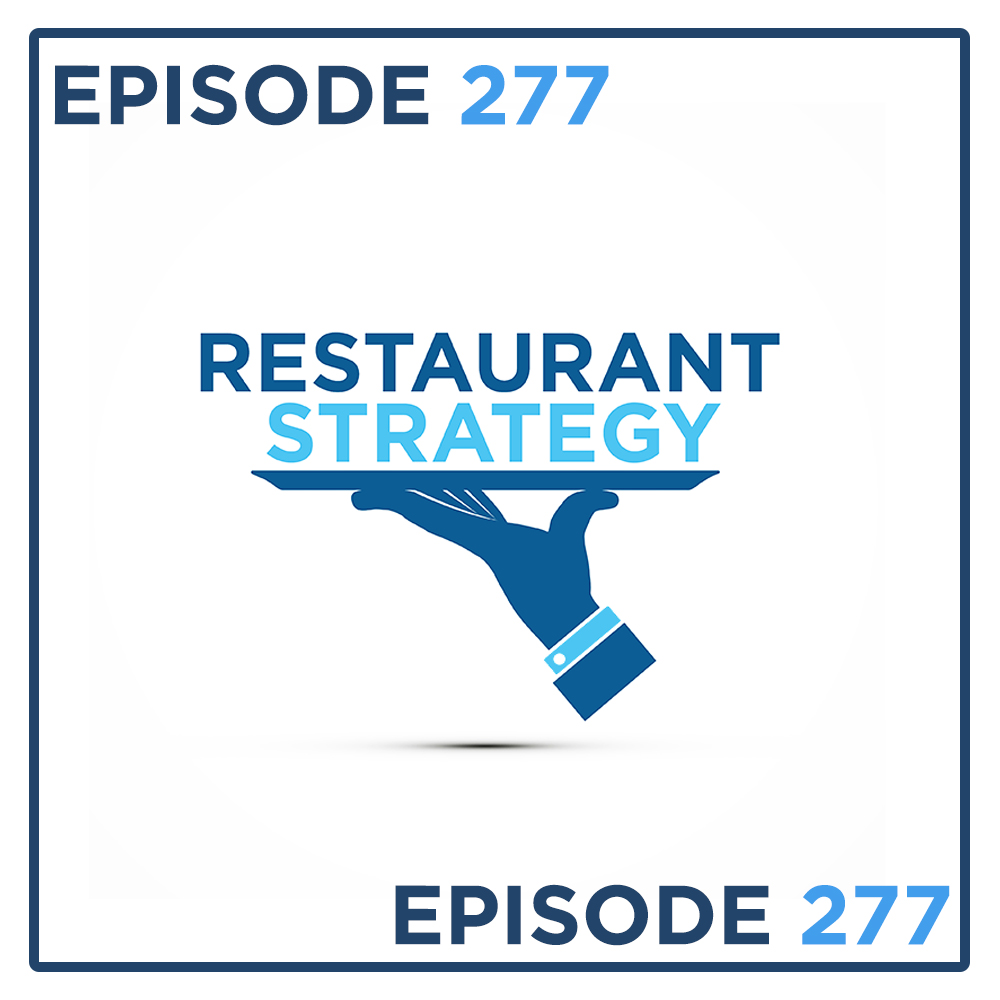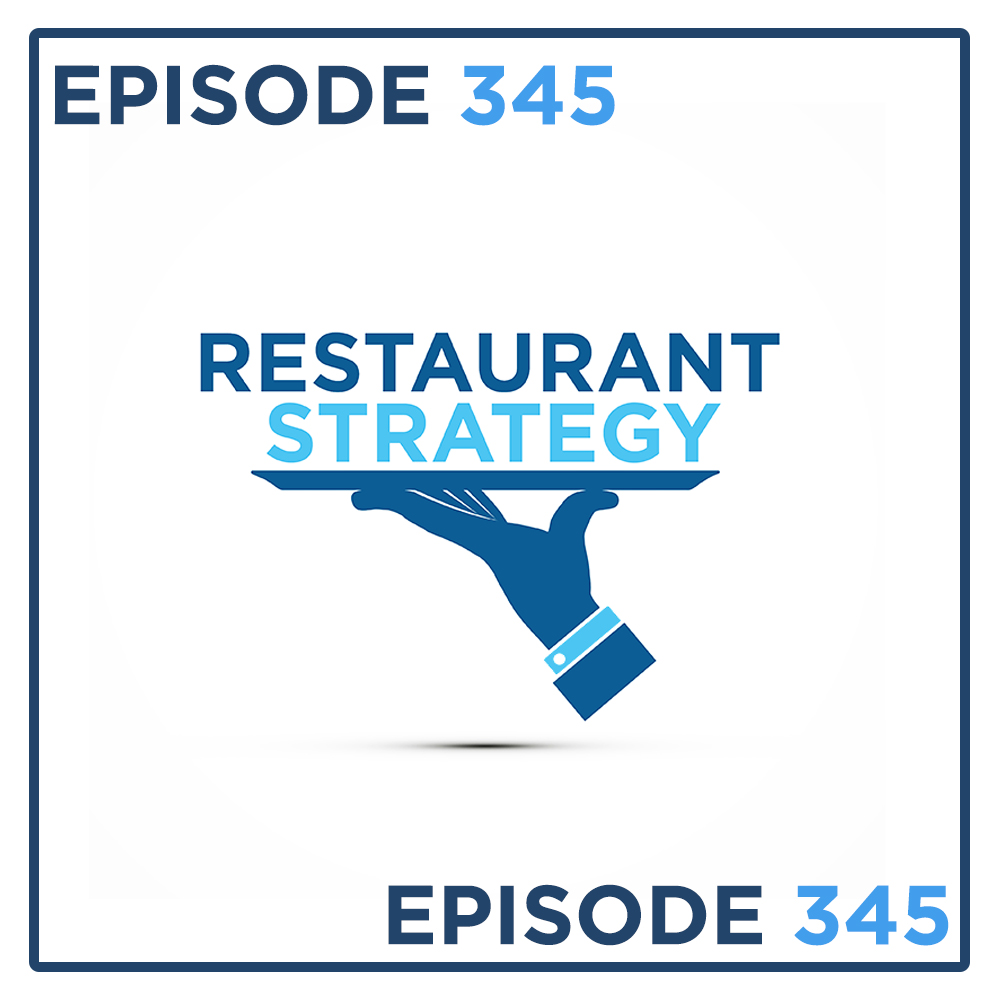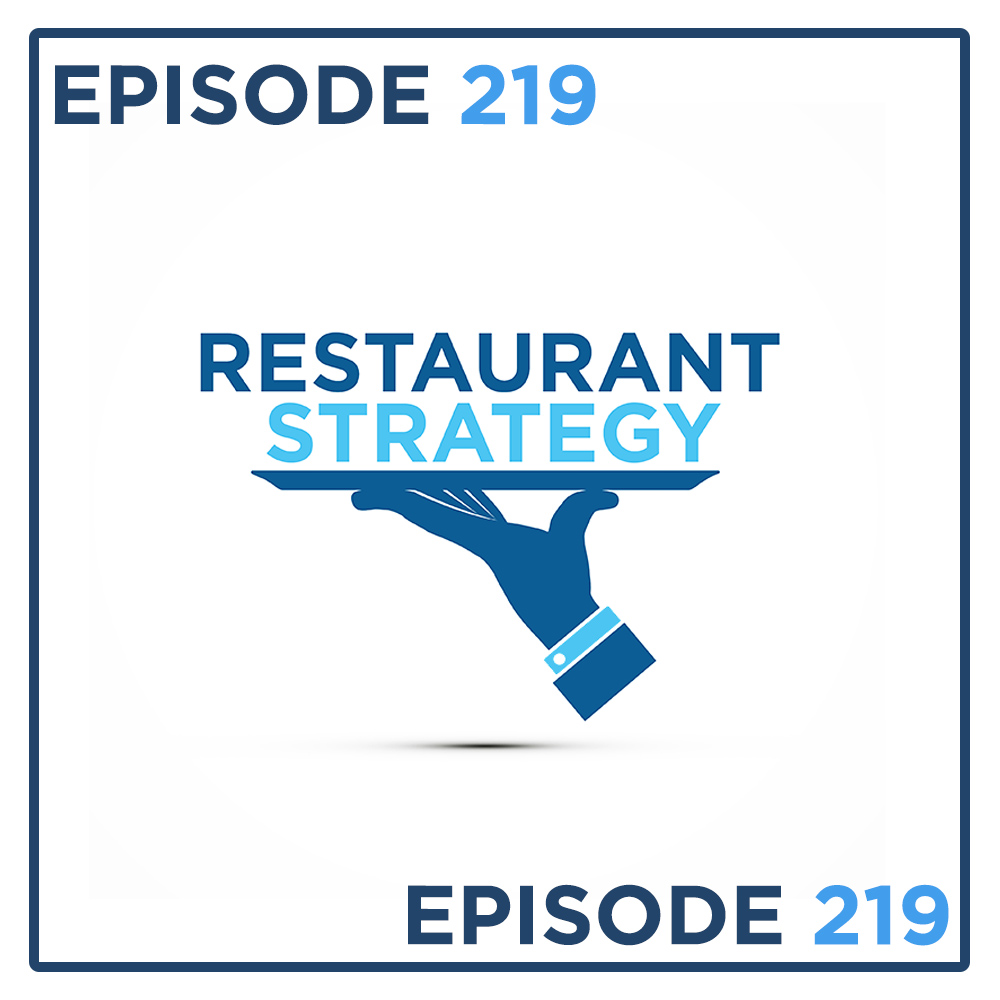Episode Transcript
[00:00:00] Speaker A: Hey there, Chip Close here, host of the Restaurant Strategy podcast. If you've been following for a while, you know we are in the middle of a 10 episode arc. I try to do this every summer where I revolve around a certain theme. 10 different episodes. Usually shorty episodes. Not meant to give you answers, but to help you raise more questions, to help you think more deeply about a certain area. This year we're talking all about crazy ideas. I think we have to continue to evolve this model and evolve our industry if we want to stay profitable. Cost of goods is up, labor is up, people's dining habits are changing and I think we have to be willing to acknowledge all of that and move forward accordingly. The restaurant of 20 years ago, of 50 years ago, of 100 years ago, is not going to be the restaurant 20 years from now. Fifty years from now, a hundred years from now. So today my crazy idea I want to talk to you is about staffing. What if we had no full time staff members? What if it was all just part time work? You wanted to get into it and see how crazy we can get. Don't go anywhere.
[00:00:55] Speaker B: There's an old saying that goes something like this. You'll only find three kinds of people in the world. Those who see, those who will never see, and those who can see when shown. This is Restaurant Strategy, a podcast with answers for anyone who's looking.
[00:01:26] Speaker A: Hey everyone, thanks for tuning in. My name is Chip Close. This is Restaurant Strategy, a podcast meant to help you build a more profitable and sustainable business.
Two episodes every week. You know, I also wrote a book. It's called the Restaurant Marketing Mindset. I run a coaching program called the P3 Mastermind where I work with independent owners and operators to help them increase profitability. I also run two live events every single year. The next one is coming up. The P3 Profitability Summit happens in Fort Worth, Texas in October 2025. It's a three day event. We have general admission tickets available, get you into two days of education plus plus the big party, food, music, open bar. The general admission tickets get you into all of that. We also have VIP tickets available which includes catered lunch Monday and Tuesday. So you get to hang out extra time with me and my team. You get a VIP welcome dinner, a proper dinner, I promise you. I'm also running then a workshop. 4 hour long sessions for you, your managers and your servers and bartenders. All meant for you to help take the things you learn in Texas and apply that directly to your team. All of that is Included in the VIP ticket, you go to chipclose.com, C-H-I P K-L-O-S E.com, click the link that says Summit. You can learn more or I've got the direct link in the show notes. Go check it out and be a part of the P3 profitability summit.
[00:02:49] Speaker B: Thousands of restaurants across the country use Kickfin to send instant cashless tip payouts directly to their employees bank accounts the second their shift ends. It's a really simple solution to what's become a really big problem because let's face it, paying out cash tips to.
[00:03:04] Speaker A: Your workers day after day, shift after.
[00:03:05] Speaker B: Shift, it's kind of a nightmare. Tedious tip distribution takes your managers away from work that actually matters. It's sometimes hard to track payments, which leads to accounting and compliance headaches. Plus, cash tip outs create the perfect opportunity for theft. And there's never been, there's never enough cash on hand to pay out those tips. So what, what happens? Your managers are constantly having to make bank runs.
Bottom line, there's never been a secure, efficient way to tip out. Until now. Meet Kickfin. Kickfin is an easy to use software that sends real time cashless tip payouts straight to your employees. Bank accounts 24 7, 365 tipping out with Kickfin gives managers and operators hours back in their day. It makes reporting a breeze and protects your business from mistakes and theft. And guess what?
[00:03:52] Speaker A: Employees love it.
[00:03:53] Speaker B: So it becomes a really powerful recruiting tool. Best of all, restaurants can have Kickfin up and running overnight. Employees can enroll in seconds. No hardware, no contracts and no setup fees. Get in touch today for a personalized demo and see how restaurants and bars across the country are tipping out with Kickfin. Visit kickfin.comdemo and yes, that link is.
[00:04:14] Speaker A: In the show notes.
Okay, so again, every summer I do these, these 10 episode arcs revolving around a certain theme. This year we're talking all about crazy ideas. Crazy ide is to reinvent, to rethink our business model because I think the business model is stuck and I think we're, I think we're hanging onto it a long time. The way I talk about this is the difference between taking a Toyota Camry on the highway and going 100 miles an hour and taking a Ferrari on the highway going 100 miles an hour. Right? The Camry is meant to go 40, 50, 60, maybe 80 miles an hour. You start getting up to 100 miles an hour and, and higher and the whole thing starts to shake. It's not built for that. On the Flip side of Ferrari. A Ferrari is not meant to go. It's meant to go 120, 140 plus miles an hour. And when you start going really fast on the highway, the whole thing just becomes smoother. It tucks in closer to the road.
What happens is that if we are pushing our model just like the Camry, we're pushing it too far. It can no longer sustain itself. At a certain point, a certain point, we have to jump out of the Camry and get into a Ferrari. We have to jump into a machine that's meant to go where we're trying to go.
Our business model. Let's not pretend that this is the only way it can happen. This model was basically invented 250 years ago in the wake of the French Revolution. That's the one we've been harboring and sort of moving forward for the last 200 some years. But it's not the only model that's ever existed. Restaurants in some form have been around for thousands of years. And I think if we want to continue to be around for thousands of more years, we have to be willing to evolve. The bottom line is, and I think we have to. I think we have to think like Jeff Bez, right? So Jeff Bezos, famously, about 10 years ago, was asked a question. He said, what does the future hold? Tell us what's changing and how Amazon is going to keep up with the changes. And he said, it's a great question, but I think the better question is the opposite question. And he said, it's the question I'm always trying to ask myself. And that is the North Star that guides Amazon. And he said, in as much as the world is changing and how technology is pushing us forward and daily human life is changing, I try to think of what are the things that will never change.
And he said, again, that becomes the North Star for Amazon. So he said, I think people are gonna want cheap things, cheap items, a broad variety and fast delivery. So they want things, they want a lot of things, and they want it quickly. He said, I don't see that ever changing. And so we build Amazon on those foundations under those precepts. And so as we look at our industry, I think it's really important, just like Jeff Bezos did, to look at the things that we think are never going to change and then be will to change everything else, right? So I think people like having food prepared for them. That is, in essence what we do. But the way we administer that doesn't necessarily have to look just like it looks today. And I think we're watching it change in real time. That's what this whole set of episodes is all about. So my crazy idea, it's a long preamble to get us back into this headspace. What if we had no full time staff? What if it was only part time? I had an interview about a year and a half ago on the podcast and the guy was interviewing, said, you know, there's something really compelling about instead of us putting out a schedule and telling people when they need to work, why not Instead of hiring 12 people, why don't you hire 40 people? And the most senior people get first pick of what shifts they want. And then the level two people get their pick and then level three people get their pick, Level four people get their pick and whatever's left over then get assigned.
But let the people pick the shifts that are going to be best for them, either because it works with their schedule or because that's where they're gonna make the most money. What if we just had a bunch of part time that were trained that were, you know, that were, that were geared up to do the job, but they had that at multiple restaurants.
Being a server, for example, a bartender is relatively mercenary. They're coming in, we're paying them a couple bucks, but the customers are paying them the majority of their money. The customers are the ones who are paying their bills, let's be absolutely honest. So what if we just had part time staff and we let them work whenever? I mean, to a certain degree, Barbers do this, right? I know a bunch of guys who will work at one shop for half the week and another shop for half the week and maybe fill in one shift at a third shop.
Tattoo artists do the same thing. They work out at different shops. It's not like this model doesn't exist. But why don't we explore this? Because then there's lots of other benefits that come from not having full time employees by just having a workforce of part timers. And nobody is overworked and overtaxed. And people just sort of like piece together their schedules and they've got the freedom, the flexibility, which, let's be honest, for a lot of front of house staff, that is what they're looking for, either to work multiple jobs or to pursue other, you know, other pursuits. Right? So they are musicians, they are dancers, they are actors, they are artists, they are whatever, they're in school.
So what if we just did it totally differently?
The thing that I think gets in our way is again, this, this us holding on to the way we were taught to, the way somebody did it, but they just did it because that's the way that the person before them did it. At a certain point we are going to have to break the cycle and say this is no longer working for us.
The restaurant of tomorrow is not going to look like the restaurant of yesterday. And I think that's okay. The whole point of these crazy ideas are not to tell you what to do. It's not me standing on my soapbox going, guys, this is what you have to do. It's not.
I'm just saying there are things that are broken. There are things that I hear people banging their heads against the wall regarding every single week. And I'm just saying, well, what if we did it differently now? There are probably real reasons why we don't do this now, but I don't know why we couldn't do it. Certainly there are plenty of clients I have in college towns and they have a handful of full time staff, but mostly they staff their entire restaurants with part time staff because they are all students.
They are pursuing other things.
And I think to ignore the reality of where a lot of our front of house staff comes from is to ignore something really important about our restaurants and the way our restaurants operate. So today's crazy idea is what if we just changed the way we staffed? Instead of assigning people to a shift, we just made the shifts available and we graded them based on 3, 4, 5 levels and the people who are most senior or had the best check average or whatever criteria you want to run them through.
But the people at the top got to pick first and then one rung down picked second and then another rung down picked third. What would that do to our restaurant? Would people be working to stay there longer? Would they actually be working to increase check average to, you know, increase or cut down on table turn times? Would they do the things that ultimately we asked them to do anyway just so that they could get access to the best shifts?
I don't know, but I think it's worth considering. Again, we're right in the middle of a 10 episode arc all about these crazy ideas. Like I said said last episode, I'm going to reiterate to you, I Hope that these 10 episodes spark another 30 ideas on your part because I certainly don't have all the ideas, I don't have all the good ideas. These are just the things that are occurring to me.
But I think we have to be willing to step outside the box, to think outside the box. Every so often. Certainly more often than I think we do. And so I'm hoping that this will get you to think outside the box. Crazy ideas. I'm sharing 10 of them. We're right in the middle. One final reminder before I let you go that the P3 profitability summit happens in October 2025 in Fort Worth, Texas. And if you've never been to one of these events, you have to get yourself there. The link is in the show notes. You can go explore Tickets Two different levels of ticket. The general admission ticket, which gets you to all of the education sessions and our big party that we throw on Monday night. It's all included. Food, music, open bar. I promise you're going to have a blast. And then if you want a little extra, there's a VIP ticket that gets you a welcome dinner on Sunday night before the event starts. It gets you catered lunch or both days of education so you don't have to go anywhere. You can sit, you can hang out with me and my team. Get extra face time to ask more questions. It also gets you a special workshop. Four hour long sessions. Yes for you, yes for your managers, but mostly for your servers and your bartenders. A way to operationalize, to put into practice all the things we're going to talk about in Texas again. Chip close.com c h I p k l o s e.com click the button that says Summit or you can find the direct link in the show notes. Appreciate you guys and I will see you next time.


